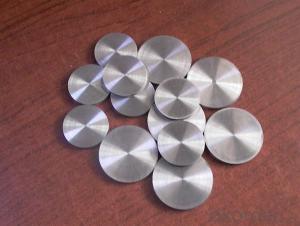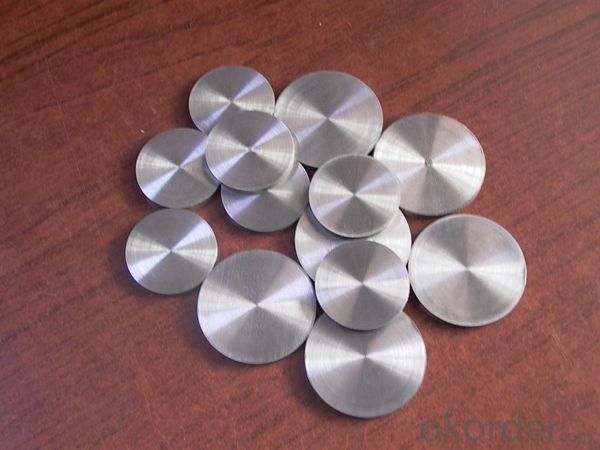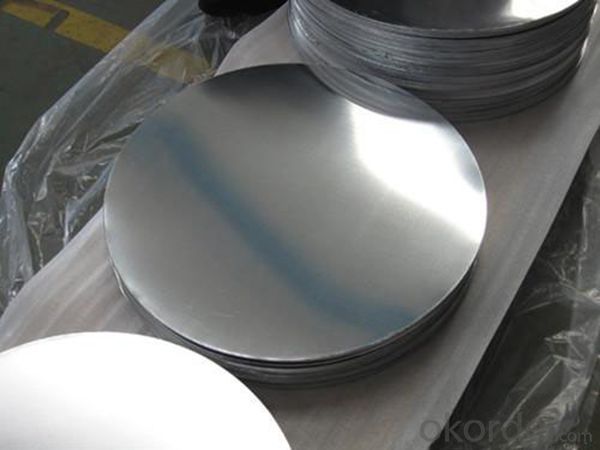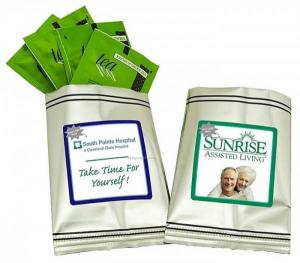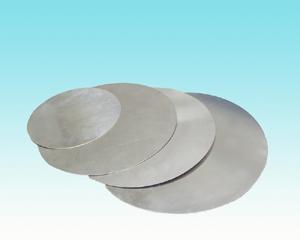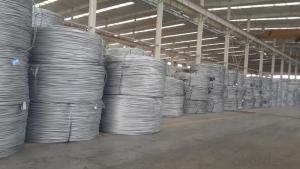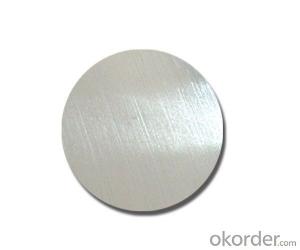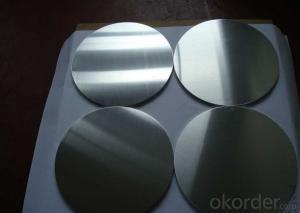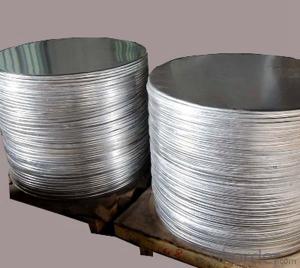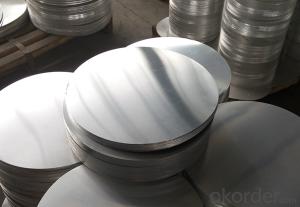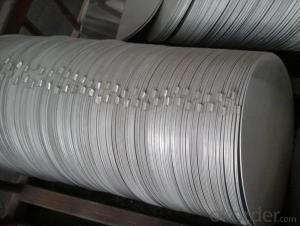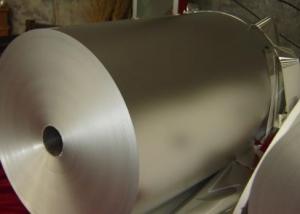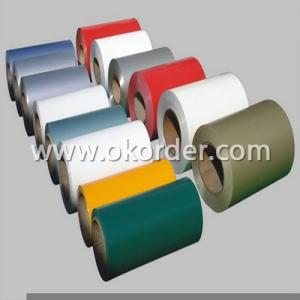Aluminum Hot Rolled Pressure Pan Aluminum Circle
- Loading Port:
- Shanghai
- Payment Terms:
- TT OR LC
- Min Order Qty:
- 5 m.t.
- Supply Capability:
- 10000 m.t./month
OKorder Service Pledge
OKorder Financial Service
You Might Also Like
Specification
1. Structure of Aluminum Circle for Pressure Pan Hot Rolled Description
• Product: Aluminim Circle
• Application: It is used in cookware, engineering, lighting purpose, fried pans, non-sticky pans, cooking pots, kettles, hard anodize cook wire, pressure cooker and house hold utensils, reflector of the light, etc
• Advantage: Deep drawing and hard anodizing quality Aluminum Circle Sheet can be supplied. Our Aluminum Circle is RoHS and REACH compliance and uses well-protected packing. Our circles are excellent material for producing cookware, utensil, pots, pans and kettles.
2.Main Features of the Aluminum Circle for Pressure Pan Hot Rolled
• High manufacturing accuracy
• Smooth surface
• No waves
• High strength of extension and yield
• Well packaged
3. Aluminum Circle for Pressure Pan Hot Rolled Images
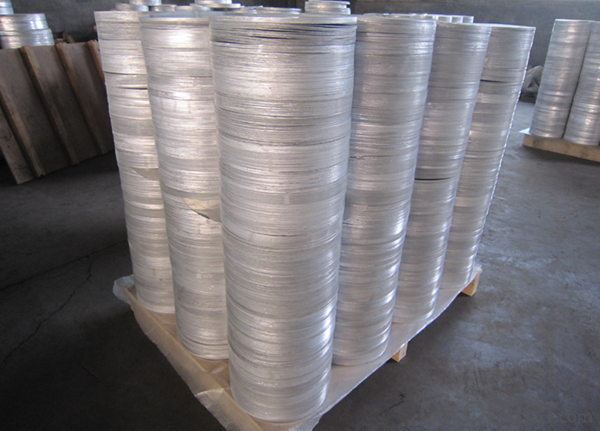
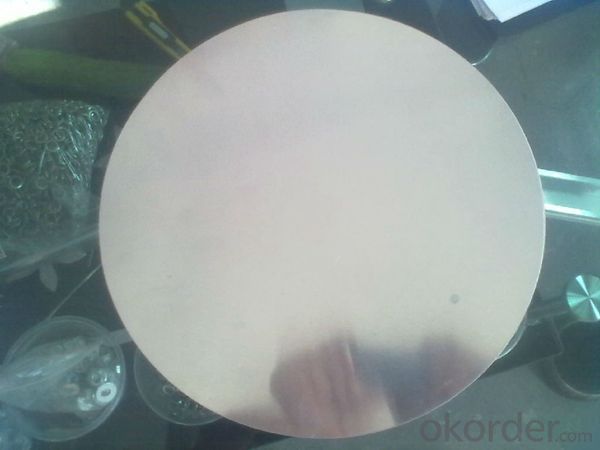
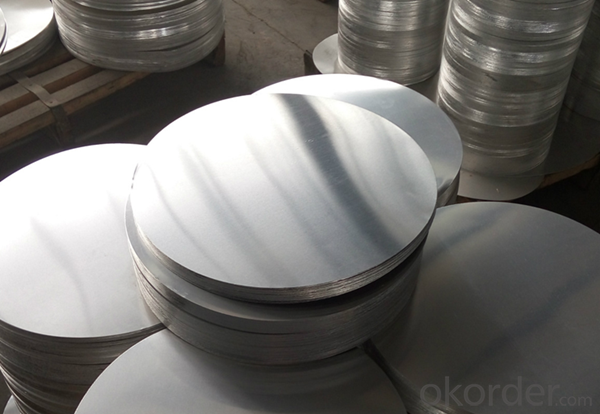
4.Aluminum Circle for Pressure Pan Hot Rolled Specification
Alloy | AA1050,AA1060,AA1100 AA3003etc. |
Temper | O,H14 |
Thickness | 0.5MM-4MM |
Diagonal | 100-1200MM |
Standard | GB/T 3880-2006 |
5.FAQ of Aluminum Circle for Pressure Pan Hot Rolled
We have organized several common questions for our clients,may help you sincerely:
① How about your company?
A world class manufacturer & supplier of aluminum coil and alloy blanks. Aluminum production base is comprised of 18 aluminum annealers, 10 coil and foil mills, 4 continuous production lines, 2 hot rolling production line and 3 prepainted lines.
Export 5000 tons per month to Asia, America and Middle East. Always do the best for our clients.
②Can you guarantee the quality of the products?
We are responsible for the quality of materials to get a long-term cooperation with clients in a reasonable period of time and we are glad to arrange and coordinate any third party inspection for you.
③What is the delivery time after purchase?
35 day after receiving client’s deposit or correct LC
- Q: This question asks for typical applications of aluminum foil in everyday life.
- <p>Aluminum foil is commonly used for food storage and preservation, as it can be wrapped around food to keep it fresh. It's also widely used in cooking, particularly for baking and roasting, to prevent food from sticking to pans or to seal in moisture and flavor. Beyond culinary uses, aluminum foil is employed in arts and crafts for creating 3D structures or as a reflective surface. It's also used in insulation, as a barrier in construction, and for packing and wrapping items to protect them during shipping. Additionally, aluminum foil is utilized in various industrial processes due to its heat resistance and malleability.</p>
- Q: Does aluminum undergo corrosion when exposed to seawater?
- <p>Aluminum does not typically corrode in seawater due to its natural protective oxide layer. When exposed to air or water, aluminum forms a thin, dense layer of aluminum oxide on its surface, which prevents further corrosion. This passive layer makes aluminum highly resistant to corrosion in most environments, including seawater. However, under certain conditions such as in the presence of certain chemicals or extreme pH levels, the protective layer can be compromised, leading to corrosion. Generally, though, aluminum is considered a good material for marine applications because of its corrosion resistance.</p>
- Q: Is it possible to utilize aluminum as a component in battery technology?
- <p>Yes, aluminum can be used in batteries. Aluminum-air batteries are a type of metal-air battery that uses aluminum as the anode. These batteries have a high energy density and are lightweight, making them suitable for certain applications. However, they also have challenges such as the need for a specific electrolyte and issues with aluminum corrosion, which limit their practical use compared to more common battery technologies like lithium-ion batteries.</p>
- Q: This question asks for the benefits or positive attributes that aluminum has compared to other types of metals.
- <p>Aluminum offers several advantages over other metals, including its low density, which makes it lightweight and ideal for applications requiring reduced weight. It also has excellent corrosion resistance, protecting it from rust and other forms of degradation. Aluminum is highly malleable and ductile, allowing it to be easily shaped into various forms. It has high thermal and electrical conductivity, making it suitable for heat exchangers and electrical wiring. Additionally, aluminum is abundant and relatively inexpensive compared to other metals, and it is fully recyclable with minimal loss in quality, contributing to its sustainability.</p>
- Q: Can reusing old aluminum foil be utilized for cleaning tasks in kitchen or bathroom areas?
- <p>Yes, old aluminum foil can be used for cleaning purposes in a kitchen or bathroom. It's particularly effective for scrubbing pots and pans, removing burnt-on food, and cleaning glass and tiles. The shiny side of the foil can be used to remove scuff marks from floors and the dull side can be used to scrub away stubborn stains. However, it's important to avoid using foil that has been in contact with acidic or corrosive substances, as it may have become damaged or weakened, and could potentially scratch surfaces. Always test on a small, inconspicuous area first to ensure it doesn't damage the surface you're cleaning.</p>
- Q: This question asks for various methods that can be used to recycle aluminum.
- <p>Recycling aluminum can be done through several methods, including mechanical recycling, which involves melting and reprocessing aluminum without altering its chemical properties. This is the most common method due to its efficiency and cost-effectiveness. Another method is chemical recycling, where aluminum is treated with chemicals to break it down into its constituent elements, which can then be repurposed. Additionally, aluminum can be recycled through a process called hydrometallurgical recycling, which uses aqueous solutions to extract aluminum from waste. Finally, sorting and collection play a crucial role in ensuring that aluminum waste is directed to appropriate recycling facilities where these methods can be applied.</p>
- Q: Is it possible to construct vehicles using aluminum?
- <p>Yes, aluminum can be used to make cars. It is known for its lightweight, high strength, and corrosion resistance, which are desirable properties in automotive manufacturing. Aluminum alloys are commonly used in car bodies, engines, and other components to reduce weight, improve fuel efficiency, and enhance performance. Additionally, its recyclability makes it an environmentally friendly choice for vehicle production.</p>
- Q: This question asks about the potential dangers associated with exposure to aluminum through consumption of food and drinking water.
- <p>Aluminum exposure in food and water can pose several health risks. Chronic exposure may lead to cognitive dysfunction and Alzheimer's disease, although this link is still debated. It can also cause bone disease by leaching calcium, potentially leading to osteomalacia and osteoporosis. In the nervous system, aluminum can cause neurotoxicity, leading to symptoms like memory loss and impaired learning. Additionally, aluminum may accumulate in the brain, potentially contributing to neurodegenerative conditions. It's important to note that the extent of these risks can vary based on individual susceptibility and the level of exposure.</p>
- Q: This question asks if there are differences in how long different types of aluminum cookware can last.
- <p>Yes, there are differences in the durability of different types of aluminum cookware. Anodized aluminum cookware is more durable and resistant to scratches and corrosion compared to non-anodized aluminum. Cast aluminum cookware is heavier and more durable than aluminum clad cookware, which is a layer of aluminum bonded to a stainless steel core. The thickness of the aluminum also affects durability, with thicker aluminum being more resistant to warping and lasting longer. Proper care and maintenance also play a significant role in the longevity of aluminum cookware.</p>
- Q: What are the various applications of aluminum in the construction industry?
- <p>Aluminum is widely used in construction due to its lightweight, durability, and resistance to corrosion. It is utilized in the manufacturing of window frames, doors, roofing, and facades for its strength and low maintenance requirements. Aluminum is also used in structural components such as beams and columns, and in the construction of bridges and high-rise buildings. Its malleability allows for easy shaping and forming, making it ideal for intricate designs. Additionally, aluminum's thermal conductivity and reflectivity make it suitable for energy-efficient construction.</p>
Send your message to us
Aluminum Hot Rolled Pressure Pan Aluminum Circle
- Loading Port:
- Shanghai
- Payment Terms:
- TT OR LC
- Min Order Qty:
- 5 m.t.
- Supply Capability:
- 10000 m.t./month
OKorder Service Pledge
OKorder Financial Service
Similar products
Hot products
Hot Searches
Related keywords
